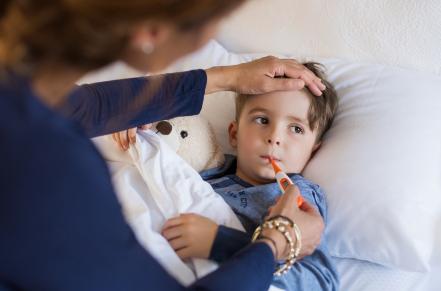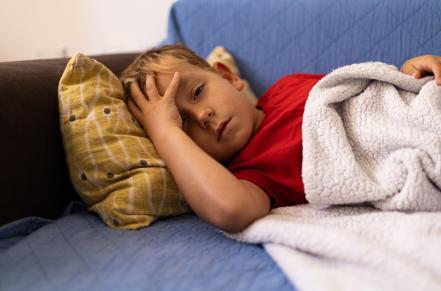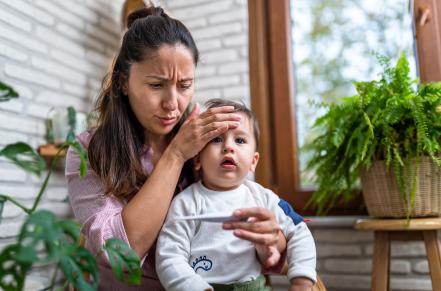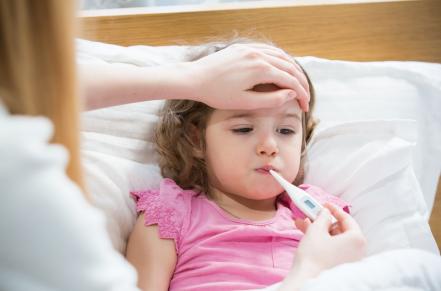What Is It?
Haemophilis influenza (not related to the viral disease called “flu”) is a group of bacteria. There are six different types of H. influenza bacteria. Haemophilus influenza type b or Hib causes the most severe disease.
Hib is a major cause of meningitis and permanent brain damage. The bacteria can infect the ears, eyes, sinuses, skin, lungs, blood, joints, throat and covering of the heart.
What Are the Symptoms?
Haemophilus influenza causes ear infection, sinus infection, infection of the epiglottis, arthritis, meningitis and pneumonia.
Who Gets It and How?
The source of the organism is the upper respiratory tract (throat, ears and nose). People spread the bacteria by direct contact or by spreading the germs into the air that other people breathe. Many (60 to 90%) children carry Haemophilus influenza bacteria in their throats without being sick. Up to 5 percent of well children have Hib in their throats. Children between the ages of three months and three years are most likely to get Hib disease. At young ages, children are less able to kill bacteria which have a protective capsule such as Hib does.
When Should People with this Illness Be Excluded?
Exclude children and staff ill with the disease until the local health department recommends they return. Exclude all children and staff exposed until preventive treatment (Rifampin) has been given, if indicated and prescribed.
How Can I Limit the Spread of Haemophilis Influenza?
- To prevent disease, make sure that children in your care (beginning from two months up to five years of age) are vaccinated. The vaccine is not required for school-age children.
- It is important to carefully observe those who are exposed, but who have not been vaccinated or completely immunized. Exposed children who develop an illness with fever need to be examined by a health care provider should receive antibiotics if indicated and prescribed.
- All contacts should receive prophylaxis (preventive treatment), including those who have received the Hib vaccine.
- Preventive treatment must be given to everyone at the same time for four days. Anyone not treated at the time preventive treatment (Rifampin) is administered to everyone else must be excluded until he or she has had Rifampin.







